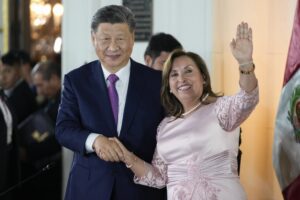The current political crisis in Peru was triggered by a failed coup, but it simmered on long-term discontent with the way democracy is working, along with a deep regional and class divide based on non-inclusive economic growth and a very weak state. On December 7, 2022, President Pedro Castillo called for a state of exception, in which the ruler gives himself power to transcend the rule of law for public good. Castillo’s self-made coup ended three hours later because of the lack of military support.
Elected in a very close election contested by his contender, Castillo had been inaugurated only 18 months before and had survived two prior impeachment attempts. Having received less than 20% of the vote in the first round of the presidential election and after breaking ranks with his own allies, he had little support in Congress. Infighting between Peruvian presidents and Congress had already resulted in four presidents within the last three years. Hence, Castillo’s actions were a desperate attempt at pre-empting the impeachment prepared by Congress for that day.
The majority of Peruvians are unhappy with the way democracy works. According to the Americas Baromer’s Pulse of Democracy, satisfaction with democracy in Peru declined from 52% in 2012 to 21% in 2021. Even though Castillo’s popularity was very low and 68% disapproved of his coup, according to a recent IEP survey, Congress’s swearing in of his successor Vice President Dina Boluarte, heightened political discontent.
Seeking to finalize Castillo’s term, she ignored demands from regional authorities in southern Peru accelerated elections. Protests, which started in the south of the country, heightened and have been spreading into the city of Lima. The South had supported Castillo and prior left-wing options, even when none of them seemed to be able to make a dent into the power of Lima’s elites.
The iron-fist response of the Boluarte’s government to the protests has resulted in the deaths of more than 50 people. Discontent is spreading into new sectors, including university students in Lima. Mobilizations continue and their tools include road blockages and the takeover of airports where they are matched by brutal repression. Meanwhile, public support for a new constitution and disapproval with Boluarte are growing according to IEP surveys. Repression has further weakened the thin government legitimacy, and it is not clear who has the authority to call for a peaceful solution of the current crisis while the cost in human lives is mounting.
Source : Columbia News
















